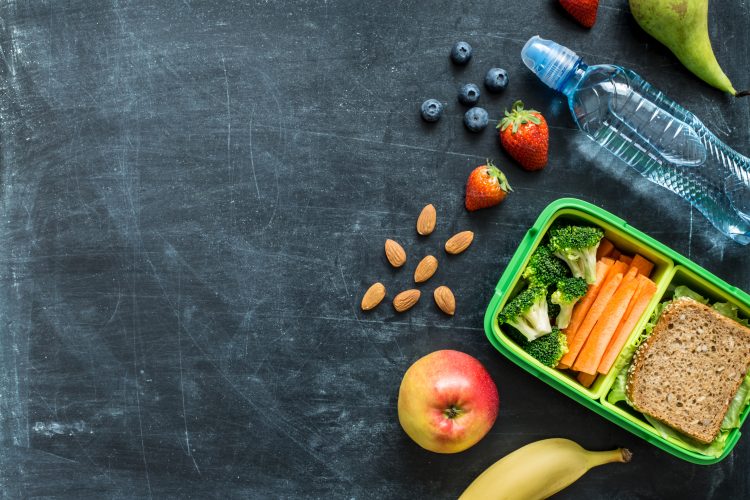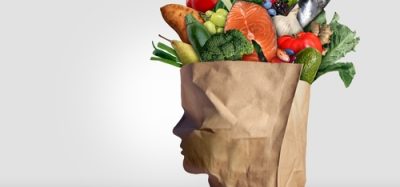Research reveals Gen Z demands radical change from the food sector
- Like
- Digg
- Del
- Tumblr
- VKontakte
- Buffer
- Love This
- Odnoklassniki
- Meneame
- Blogger
- Amazon
- Yahoo Mail
- Gmail
- AOL
- Newsvine
- HackerNews
- Evernote
- MySpace
- Mail.ru
- Viadeo
- Line
- Comments
- Yummly
- SMS
- Viber
- Telegram
- Subscribe
- Skype
- Facebook Messenger
- Kakao
- LiveJournal
- Yammer
- Edgar
- Fintel
- Mix
- Instapaper
- Copy Link
Posted: 27 July 2021 | New Food Magazine | No comments yet
Young people feel forgotten when it comes to advice on healthy eating – that’s according to a new study conducted by EIT Food.


A new study has suggested that Gen Z, or those born within the last 25 years or so, are demanding the most from the food sector, with nutrition at the forefront of what they want from their food.
The research, commissioned by EIT Food and supported by the European Institute of Innovation and Technology (EIT), surveyed over 2,000 18-24 year olds from across the UK, France, Germany, Poland and Spain. The findings point to a generation that is knowledgeable and entrepreneurial in regard to their eating habits, with consideration to their wellbeing and mental health.
Over half of 18-24 year olds (52 percent) track their food in some way, though this figure differentiates across countries (65 percent of young people in Germany compared to just 38 percent in France).
36 percent of young people focus on counting calories, however a quarter of all young people (24 percent) also track the macronutrients of the food they eat. Additionally, 79 percent consider processed foods unhealthy – and therefore prefer organic and plant-based options for a healthier diet.
The COVID-19 pandemic has heightened awareness of the importance of health amongst young people, with 58 percent saying the pandemic has made them more aware of eating healthily. Meanwhile, 67 percent say that healthy food is currently fashionable.
The study also claims that young people feel they aren’t getting the support they need from educators, industry and policy makers regarding healthy eating. 75 percent say they need clearer advice on how to eat healthy, with 65 percent arguing they received little healthy eating education at school. Just under two thirds (61 percent) reported that it can be hard to know how to eat healthily as there is much conflicting advice.
78 percent of those surveyed said they would like food labels to have clearer information on the way food is processed, not just the ingredients, while 75 percent think food brands need to be more transparent about their ingredients and processes.
With an attempt to fill the advice gap themselves, 67 percent report that they regularly look at social media content (such as TikTok or Instagram) about healthier food options. Meanwhile, 52 percent say they rely on social media or their friends for advice on eating healthily.
However, the impact on mental health of being so nutritionally minded was not lost on the young people that took part in the study.
In fact, 55 percent of young people surveyed think that including calorie counts on food labels and menus can be detrimental to people’s mental health – a figure that rises to 62 percent in the UK, 60 percent in France and 61 percent in Germany.
Nearly eight in 10 people say the younger generation requires better advice on the link between what they eat and their mental health.
“Young people are fundamental for the transformation towards healthy and sustainable food systems. Yet our research clearly shows that they are being let down. Across Europe, 18-24 year olds find healthy food more expensive, harder to find on the go, and lacking the information and advice they need to make informed nutritional decisions,” said Dr. Andy Zynga, CEO of EIT Food.
“The voice and asks of this young and dynamic food generation need to be heard by everyone across the food sector.
“That’s why we are launching our campaign ‘Our Food, Our Food System’, to give our young people the voice they deserve and help everyone in the food systems to understand their needs.”
EIT Food says ‘Our Food, Our Food System’ aims to help young people have their say on the future of food. 10 young ‘FutureFoodMakers’ will be recruited to call for radical change in the food sector, with the hope of tackling access to healthy, sustainable and affordable food.
Related topics
Related organisations
European Institute of Innovation and Technology (EIT), Instagram, TikTok









